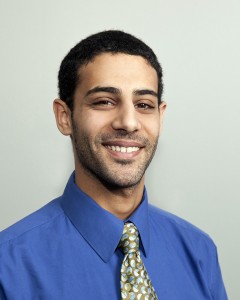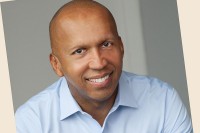Over the years a handful of John Marshall Law School students and graduates have been able to demonstrate their international law expertise by working abroad.
“These international jobs are within reach for our graduates,” said Professor Shahram Dana, who has helped place John Marshall graduates in three-month and six-month clerkship positions in The Hague, Netherlands, working at the United Nations International Criminal Tribunal for the former Yugoslavia (ICTY), other UN agencies, and human rights nongovernmental organizations in Africa.
Joshua Bishay (JD ’13) will be John Marshall’s first graduate to travel to Phnom Penh, Cambodia, to work as a law clerk for the United Nations Assistance to the Khmer Rouge Trials (UNAKRT), in the Extraordinary Chambers in the Courts of Cambodia (ECCC).
Bishay will work in the office of the co-prosecutors of the ECCC, focusing on cases of war crimes, genocide and crimes against humanity that were committed under the Communist rule of the Khmer Rouge from 1975 to 1979.
Bishay got in touch with the prosecutor’s office at the ECCC through the help of Dana, his professor for International Criminal Law and International Human Rights courses. Bishay’s six-month clerkship will begin July 1.
“Josh is enthusiastic and passionate about human rights,” Dana said. “I was impressed with his level of engagement, preparation and legal analysis.”
Bishay is the fifth John Marshall graduate Dana has been able to place in a law clerkship abroad since 2010. Other graduates that worked at the ICTY handled cases similar to the ECCC’s, holding accountable those that bear the greatest responsibility for gross human rights violations.
Kurt Larsen (JD ’95) has been involved with humanitarian work with the People Improvement Organization in Phnom Penh during the past 10 years, and says the war crimes tribunals bring closure to the people of Cambodia and accountability for the war criminals.
During the rule of the Khmer Rouge, many victims were tortured and executed under a wide criteria: having connections to the former government or connections with a foreign government; possessing any formal education; being Vietnamese, Chinese or Thai; being Muslims; being Buddhist monks; or coming from an urban area and lacking agricultural ability.
“The things members of the Khmer Rouge did were atrocious,” Larsen said. “Many innocent people died from land mines, malnutrition and malaria.”
Under Khmer Rouge rule, approximately one-fourth of Cambodia’s population was wiped out.
“[I am interested in these cases because they] delve into how crimes in other countries spill into the countries around it,” Bishay said. The Khmer Rouge regime formed as a result of the Vietnam War, and intended to carry over Communist ideals originated in what was then North Vietnam. Bishay recognizes that similar issues have occurred in different countries, and in different conflicts. “I want to understand the reparations process and how that works.”
Drawn to John Marshall for its international law curriculum and opportunities for internships, Bishay knew the professors in his program would be able to provide the foundation he was seeking.
“I encourage Josh to pursue his dreams and passion for human rights advocacy,” Dana said.
Bishay has developed a keen interest in human rights cases. After his Cambodian experience, he hopes to find a position that will allow him to continue working on human rights issues. “I want to understand and be a part of the process,” he said. “This is a good opportunity to go to Cambodia and further study what I’d learned about the country and its history.”
Bishay received a bachelor’s degree in anthropology from the University of Illinois at Chicago.



